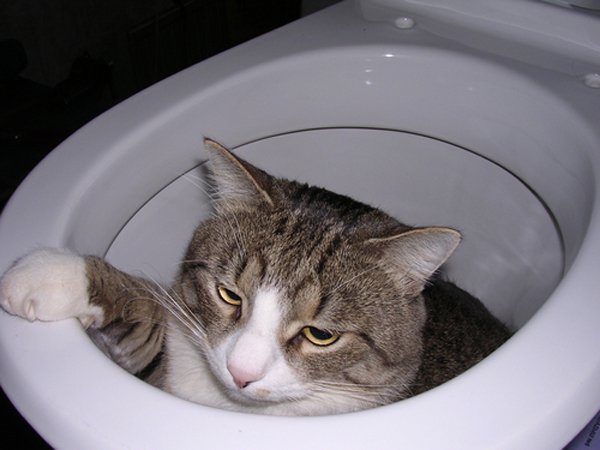Reasons Flushing Cat Poop Down Your Toilet Is Bad - Suggestions for Proper Disposal
Reasons Flushing Cat Poop Down Your Toilet Is Bad - Suggestions for Proper Disposal
Blog Article
Nearly everybody seems to have their personal way of thinking involving Can You Flush Cat Poop Down The Toilet?.

Introduction
As pet cat proprietors, it's essential to be mindful of just how we throw away our feline friends' waste. While it might seem practical to purge pet cat poop down the commode, this method can have detrimental consequences for both the atmosphere and human wellness.
Alternatives to Flushing
Luckily, there are safer and more responsible methods to get rid of feline poop. Consider the following alternatives:
1. Scoop and Dispose in Trash
One of the most typical method of throwing away feline poop is to scoop it into an eco-friendly bag and throw it in the garbage. Be sure to make use of a dedicated litter inside story and throw away the waste immediately.
2. Use Biodegradable Litter
Go with naturally degradable pet cat litter made from materials such as corn or wheat. These trashes are environmentally friendly and can be securely thrown away in the garbage.
3. Bury in the Yard
If you have a yard, take into consideration hiding feline waste in a marked area far from veggie gardens and water sources. Make sure to dig deep sufficient to stop contamination of groundwater.
4. Mount a Pet Waste Disposal System
Invest in an animal waste disposal system particularly made for pet cat waste. These systems make use of enzymes to break down the waste, reducing smell and ecological effect.
Health and wellness Risks
In addition to environmental concerns, purging feline waste can likewise pose wellness threats to people. Cat feces might consist of Toxoplasma gondii, a parasite that can create toxoplasmosis-- a potentially extreme health problem, particularly for expectant ladies and people with weakened body immune systems.
Environmental Impact
Purging cat poop presents damaging pathogens and parasites right into the supply of water, posturing a significant danger to marine communities. These impurities can adversely impact aquatic life and concession water quality.
Conclusion
Liable family pet possession expands past offering food and shelter-- it likewise includes appropriate waste administration. By avoiding purging feline poop down the bathroom and selecting different disposal methods, we can minimize our environmental footprint and safeguard human health.
Why You Should Never Flush Cat Poop Down the Toilet
A rose by any other name might smell as sweet, but not all poop is created equal. Toilets, and our sewage systems, are designed for human excrement, not animal waste. It might seem like it couldn’t hurt to toss cat feces into the loo, but it’s not a good idea to flush cat poop in the toilet.
First and foremost, assuming your cat uses a litter box, any waste is going to have litter on it. And even the smallest amount of litter can wreak havoc on plumbing.
Over time, small amounts build up, filling up your septic system. Most litter sold today is clumping; it is made from a type of clay that hardens when it gets wet. Ever tried to scrape old clumps from the bottom of a litter box? You know just how cement-hard it can get!
Now imagine just a small clump of that stuck in your pipes. A simple de-clogger like Drano isn’t going to cut it. And that means it’s going to cost you big time to fix it.
Parasitic Contamination
Believe it or not, your healthy kitty may be harboring a nasty parasite. Only cats excrete Toxoplasma in their feces. Yet it rarely causes serious health issues in the cats that are infected. Most people will be fine too if infected. Only pregnant women and people with compromised immune systems are at risk. (If you’ve ever heard how women who are expecting are excused from litter cleaning duty, Toxoplasma is why.)
But other animals may have a problem if infected with the parasite. And human water treatment systems aren’t designed to handle it. As a result, the systems don’t remove the parasite before discharging wastewater into local waterways. Fish, shellfish, and other marine life — otters in particular — are susceptible to toxoplasma. If exposed, most will end up with brain damage and many will die.
Depending on the species of fish, they may end up on someone’s fish hook and, ultimately on someone’s dinner plate. If that someone has a chronic illness, they’re at risk.
Skip the Toilet Training
We know there are folks out there who like to toilet train their cats. And we give them props, it takes a lot of work. But thanks to the toxoplasma, it’s not a good idea.

We had been shown that editorial about Don’t flush cat feces down the toilet from an acquaintance on a different website. Sharing is good. You just don't know, you could be helping someone out. Thank you so much for your time invested reading it.
Check It Out Report this page